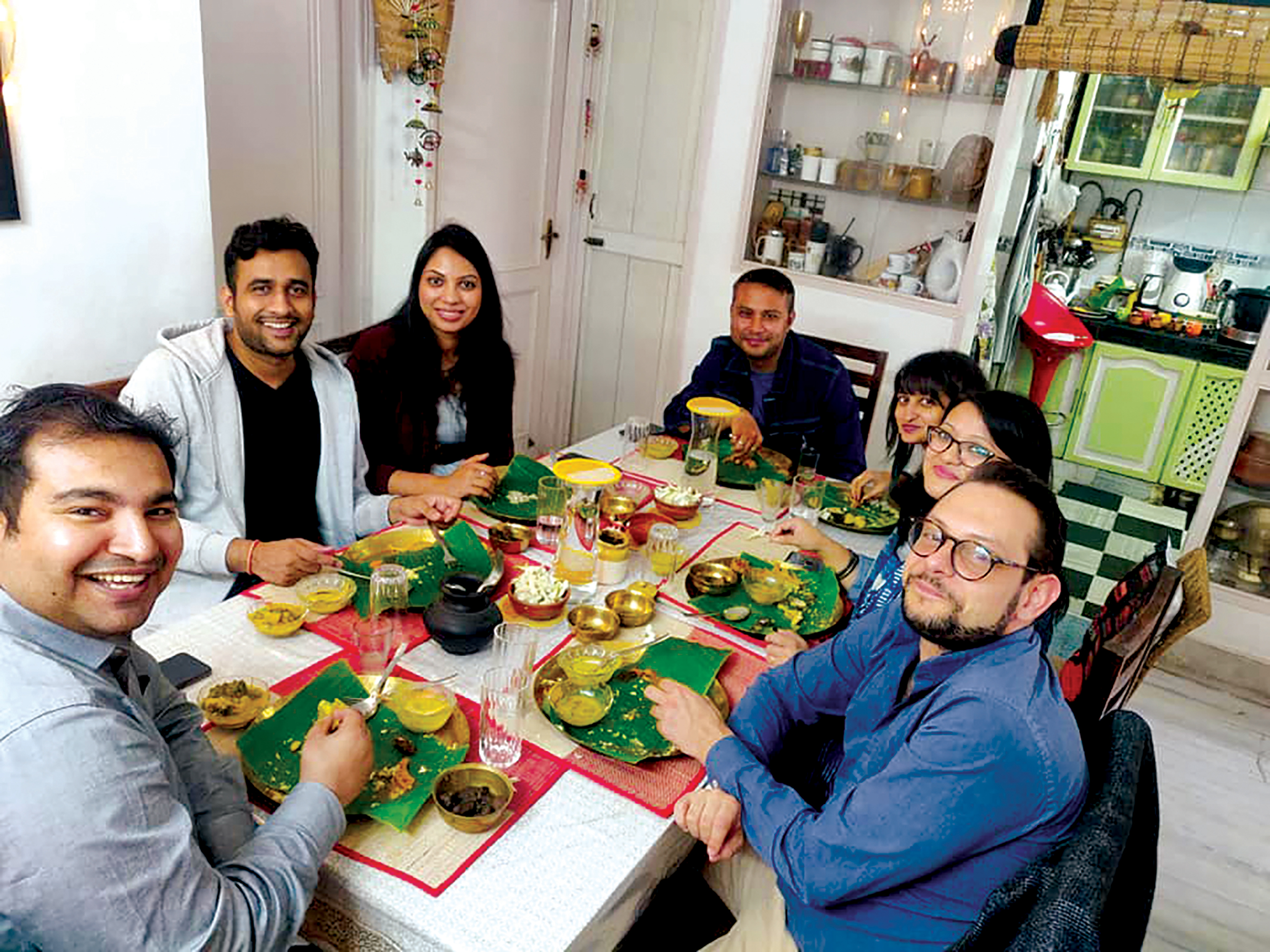If you are passionate about your food and love to feed people, you don’t need a restaurant or a hotel. People like Sneha Lata Saikia invite people home to sample tribal food and imbibe a culture
If you’re passionate about food — to cook and feed — there’s no stopping you. Your passion and talent will not only win people’s appreciation but also help earn good money. There are enough customers who love their food and will go for pop-ups — food festivals in a hotel or a restaurant.
People like scribe Pritha Sen and academic Kiran Bhushi are a good example of professionals who dabble in this business. They specialise in the cuisine of the part of the country they belong to, but love to experiment with different cuisines, innovative dishes, more by intuition than design, to enrich the culinary palette. It’s a treat to the senses — taste and aroma — that reminds of the beautiful things in life. For some, it’s like reliving childhood.
Those who practise cooking as an art form see cuisine as one potent way of asserting their cultural identity. The flavours of a place are ingrained in the psyche of people, defining the cultural identity in a very significant way. Food makes people nostalgic, especially when they live and work far from where they grew up.
Take the case of Sneha Lata Saikia. Hailing from Assam, she is single and in her 40s, an accessories designer by profession, a foodie by heart. When she returned from New Zealand after working there for many years, she settled in her own house in South Delhi. She wanted to spread the flavours of her home state, Assamese food in particular, but she also promotes tribal food from the North Eastern states.
It was a matter of botheration to her that people in Delhi had such vague, almost mythical, ideas about the people and their food from the North East. Initially, she joined many online food groups, and there were many takers for butter chicken and mutton korma, but when she’d put up dishes from Assam or tribal cuisines, people were at best apprehensive and gave a lukewarm response. “The dishes weren’t as colourful,” she concedes, but the lingering suspicion about the tribal food that they eat just about everything that moves, including snakes and insects, prevented people from experimenting with her food and cuisines.
Saikia had to clarify ample number of times that “It’s not a snake but an eel — a fish.” Though it has to be said that the people aren’t entirely wrong in having an impression that insects and bugs do form an integral part of tribal recipes, that’s what makes the cuisine interesting, unique — and if I may use the word — organic. And the inherent biases and prejudices are preventing them from enjoying the delicacies of the North East, which has an East Asian connection that goes as far as Japan and Korea.
Saikia was committed to change all that by offering people the best palate from an unexplored part of the country in the capital. She specialises in delicacies made from red ant eggs, grasshoppers, silk worm, pork curry — but don’t think it’s all about meat. “On Rongoli Bihu (the most popular Bihu celebrates the onset of the Assamese New Year in April) a celebratory dish is made using 101 herbs and vegetables,” she explains while offering the writer black carrot halwa. Delicious! She makes the best of the best from the region, even the locals shed tears of nostalgia, her food reminds them of their grandmother’s kitchen. It’s God’s gift, a wizard of flavours, for she asserts, “I’m not a trained cook.” She talks about food and flavours like we perhaps discuss grocery. It happens very naturally to her.
Her resolve to make a difference bore fruit. Apart from organising food festivals in restaurants and five-star hotels, she has also traveled abroad to showcase her culinary talent, and does a weekly pop-up. Saikia invites six strangers to sample her cuisines every weekend over a meal called ‘Table for 6 Luncheon.’ She has already hosted more than 50 such pop-ups and converted many an avid connoisseur of tribal cuisines.
So if you want to sample rare delicacies like red ant eggs, she’s the right person. It’s a really big red ant that lays eggs on top branches of a tall tree, and is only available for a few months in Assam and adjoining states. Obviously, is very difficult to lay hands on it. A 100 grams of red ant eggs, or a fistful of it, may cost in excess of Rs 2,500. A spoonful of it is more than enough: It has a typical flavour and very rich in protein. Locals have it only once or twice a year.
It goes without saying that it’s not easy to get the ingredients here in the capital — her friends and family get it for her when they come to the city. Now having tasted success, and introduced tribal palates to Delhiites, she is keen to popularise it. Acceptability should replace suspicion that stems from misinformation.
People like Saikia give Delhi a truly cosmopolitan flavour. This is just a good beginning, much more lies ahead. Good news for the foodies in the capital.





